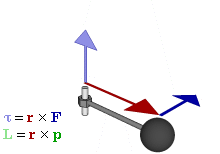Anywho, I read with interest question #99: A communicator's words cannot communicate the desired meaning to another person unless the
a. words give the meaning that is in the mind of the receiver.Any guesses? I'd rule out the one with the word "referents." I've never even heard of that word before. And if the receiver already had the meaning in their mind, they wouldn't need an instructor, would they? So that leaves b, which is pretty obvious anyway.
b. listener or reader has had some experience with the objects or concepts to which these words refer.
c. words have meaningful referents.
This reminded me of my flight training days back in the Army. My instructor (a Vietnam vet, now Department of the Army civilian) was a screamer who was not satisfied unless I left the helicopter crying (I'm pretty sure the FOI would say this would have been needed to be stated in the learning objectives, but I digress).
The briefing table was not much better. The prebrief consisted of introducing new concepts of rotary wing flight that we would see demonstrated in the Huey. Sounds fair, right? I still remember one day that we sat down at the table and first thing my instructor says to me totally out of the blue
 , "A pound of torque equals five knots or 100 feet per minute." I stare back blankly. So he says it again. "A Pound Of Torque Equals Five Knots Or 100 Feet Per Minute." I got nothing. So he asks my stick buddy (as we called my training partner in those days - love ya, Marty, wherever you are), "do you understand me?" "Yes," says Marty, "but I majored in Aeronautical Engineering (or something similar)." [I can only assume my degree in History is why the question was directed toward me in the first place.] Screamerman wasn't listening. So, again, he repeats, "A POUND OF TORQUE EQUALS FIVE KNOTS OR 100 FEET PER MINUTE." This time so the whole room could hear how much trouble he was having getting through to me. [visual aid (the use of which is highly stressed in the FOI) from http://en.wikipedia.org/wiki/Torque]
, "A pound of torque equals five knots or 100 feet per minute." I stare back blankly. So he says it again. "A Pound Of Torque Equals Five Knots Or 100 Feet Per Minute." I got nothing. So he asks my stick buddy (as we called my training partner in those days - love ya, Marty, wherever you are), "do you understand me?" "Yes," says Marty, "but I majored in Aeronautical Engineering (or something similar)." [I can only assume my degree in History is why the question was directed toward me in the first place.] Screamerman wasn't listening. So, again, he repeats, "A POUND OF TORQUE EQUALS FIVE KNOTS OR 100 FEET PER MINUTE." This time so the whole room could hear how much trouble he was having getting through to me. [visual aid (the use of which is highly stressed in the FOI) from http://en.wikipedia.org/wiki/Torque]I finally said to him something to the effect of "You know, you could be speaking Greek for all the sense those words are making to me. And saying it louder is certainly not going to make it any more clear." There was probably a sniff in there too. Then, and only then, did he explain that the power applied to the main rotor was measured in pounds of torque (force rotating around an axis) and an increase in this force could either manifest itself as an increase in airspeed (measured in knots) or a climb (in feet per minute). Or something like that.
Now. Wasn't that easier? Less hostile? Much more effective?
The good thing is that I made it through flight training. Yes, I struggled with the basics, but by the time we were in the practical application phase (Basic Combat Skills) I had no worries whatsoever. The residual effect of this method of training, though (yeah, I know, it WAS the Army), was that when I messed up in the helicopter, I would scream at myself. My first airplane instructor (also ex-military) chuckled every time we students messed up. Laid back, calm, constructively criticizing. I much prefer the latter, wouldn't you? My students won't have to choose; I don't have much of a voice for screaming anyway.
No comments:
Post a Comment